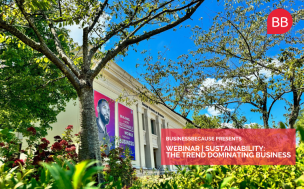Photo credit dppowells
Anthony DeAngelis is a 2010 graduate of the Villanova MSF program. He now runs the website http://msfhq.com/ to help educate those interested in studying for a Masters in Finance.
When choosing which specialized Masters program to attend, there are many elements a student should consider. Each one of these factors is important in its own regard and should be weighed equally against each other. They apply to students is applying for a Masters in Finance, a Masters in Accounting, or a Masters in Management, these components must be taken into account.
Location – Location is an important consideration because of the newness of these specialized business programs. With the exception of the Master in Accountancy programs (MAcc), the specialized business Masters degree is relatively new- at least when compared to its grandfather, the MBA. Because of this newness, and the fact that these programs do not have the track record that an MBA has, they tend to place students in a geographic area close to where the school is located.
Why is this the case? Only a few schools have national and/or global placement ability. As of right now, the majority of MSF/MMS/MAcc programs are held at respected universities that have strong relationships with local firms and alumni in a tri-state area.
If a student wants to work down South, they should target their school search in that area. If a student really wants to work on the West Coast, they should look out there. Schools located in areas where a potential masters student would want to work will have the strongest alumni and employment opportunities.
Internship Needs – Internships play an important part when it comes landing a job in finance. If a student has an internship already, the need for another one during the Masters program is not as great. For those without an internship, the location of the Masters program plays a big part. Being located near a financial center or at the very least, a decent-sized city becomes a necessary consideration. It is easier to find an internship in Philadelphia or Boston than it would be in Nashville or Durham.
Now, just because a university isn’t located near a major city does not mean there aren’t other strategies that can be done to gain valuable experience equal to an internship. Many programs offer practicums or group projects that can give students practical experience to list on their resume and talk about during an interview.
Students should inquire about the ability to intern during the program; and if not possible, the ability to participate in these types of learning activities.
Placements – Placement is one of the most asked-about aspects of any Masters program and important to consider when making your decision. The primary goal of a potential Masters student is to find a job and use the degree as a springboard.
On Campus Recruiting (OCR) is the main way many students interview and secure a position, but they can also be obtained through networking with alumni and interviewing at firms that do not have a recruiting relationship with the university or program. Previous placements and the firms that have interviewed students are the best indicators to what potential applicants can expect from a program.
One caveat when comparing placement among programs. Specialized Masters Programs are comprised of students with limited experience; therefore, placements tend to extend beyond the completion of the program. When examining placements, keep in mind that your individual goals and maturity level will largely dictate how you do in and outside of the program. It takes some students longer to secure an offer through no fault of the program.
Start Time - Start time is an important consideration for a variety of reasons. For one, students cannot have a summer internship if the program starts early in the summer. Also, students that had a poor undergraduate performance will not have an opportunity to secure a new, higher GPA before fall recruiting begins. For students with a GPA of 3.5 and above this isn’t a serious issue. For those with lower than a 3.5, having the opportunity to go into recruiting with a higher summer GPA can be more important than the need to intern in the summer.
Career Goals - A Masters in Finance program will clearly place primarily in the field of finance. A Masters in Management program will have a much wider and more diverse placement ability- attributed to its less specialized nature. A Master in Accounting program will obviously place primarily into accounting roles.
Among these different degrees, there are certain schools that tend to have a more F500 corporate finance focused background and others that have more of an investment banking and capital markets history. Students need to choose which field of work that they want and the jobs which they are open to before deciding on a school. Career goals are impacted depending on the program of study and university chosen.
Branding – Many students do not understand how much the school name and reputation impact OCR and alumni networking. For these students, going to a specialized Masters program provides an opportunity to rebrand from their undergraduate experience without waiting to do an MBA. If a student went to a well-known undergraduate program then this isn’t an important consideration. For those who went to a university with limited alumni and networking, rebranding is something that should be strongly considered.
These elements are not the only factors a student must deliberate on, but are often overlooked or not understood. In my experience, students who think about these components and weigh the various aspects will pick programs that suit them well and provide the most rewarding experience.
RECAPTHA :
21
5b
ee
03







